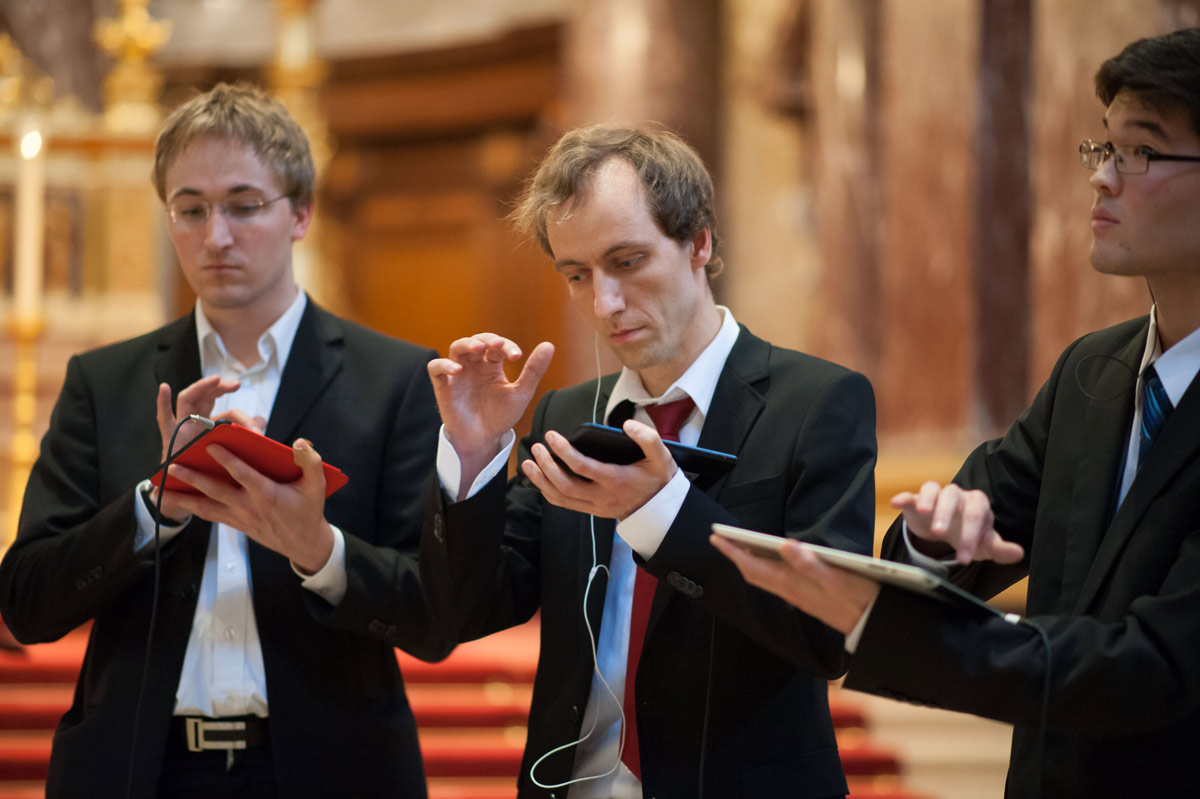Classical music with a digital twist
How do classical music interpretations succeed impactfully? What approaches are there to integrate apps into participational music-making offerings? The short talk Matthias Krebs held at the EBU Academy 2018 from the European Broadcasting Union (promoting the interests of public service media) showed how classical cultural practices are developed and at the same time, new cultural practices of participatory form arise.

In the first part of the lecture, approaches will be presented in which musicians use apps to create pieces of music that can be classified as part of the „classical“ repertoire. The examples provide insight into different forms of virtuosity, expressivity, ensemble interaction and stage presentation. The second part focuses on approaches in which the audience does not consume but can become musically active themselves.
The slides published here are intended as a script and contain additional explanations, examples, links and app recommendations:
We would like to invite you to a discussion and exchange.
- How do you answer that question: „Isn’t it better to learn to play a real instrument?“
- How will the way people make music change when digital instruments are disseminated?
- What potential do music apps offer media companies to develop new formats?
Matthias Krebs ist Universitätsassistent an der Universität MOZARTEUM (Salzburg) und Leiter der Berliner Forschungsstelle Appmusik. Seine Forschungsschwerpunkte betreffen: Digitale Medien in Lehre und Forschung, Kommunikation im Social Web, Netzkunst, Appmusik sowie Grundlagenforschung zum Musizieren mit digitalen Musiktechnologien.
Als Lehrbeauftragter ist der Diplom-Musik- und Medienpädagoge an mehreren deutschen Musikhochschulen sowie als Dozent für Weiter- und Fortbildungen und auch bei den Appmusik-Workshops bei app2music aktiv.








Kommentar verfassen